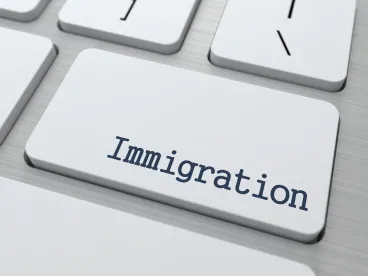Late Friday evening on March 3, 2017, The U.S. Citizenship and Immigration Services (“USCIS”) announced that it will temporarily suspend its premium processing service for all H-1B petitions, including CAP-subject H-1B petitions. The temporary suspension will begin on Monday, April 3, 2017, and may continue for up to 6 months. This procedural change is intended to help USCIS clear the backlog of long-pending H-1B petitions that USCIS has not yet reviewed. USCIS will give priority review to H-1B extension petitions that are nearing the end of the automatic 240-day work authorization extension period. USCIS has made other efforts to alleviate the long-pending backlog of pending H-1B petitions with the Vermont and California Service Centers by directing petitioners to submit H-1B extension requests with the Nebraska Service Center, regardless of the H-1B worksite location.
USCIS will process all H-1B petitions filed with a premium processing request that are received before April 3, 2017. Because April 3 marks the first business day of April, when the H-1B CAP opens, CAP-subject H-1B petitions will not be eligible for premium processing.
The temporary suspension will not impact employers’ ability to premium process other petitions that are eligible for premium processing after April 3, 2017. This list includes other common Form I-129 petitions, such as L-1, TN, O-1, and H-3, and immigrant petitions, like PERM-based I-140, and EB-1 extraordinary ability petitions.
Effects on Employers
The suspension of premium processing for H-1B petitions will impact an employer’s ability to request adjudication of an H-1B petition in 15 calendar days. Common employer H-1B premium processing requests will be unavailable, such as:
- H-1B change of employer petitions: Employees who are porting their H-1B petitions from one company to another will need to wait 3 to 5 months before they receive the final H-1B approval notice. So, even though H-1B-porting workers may start working when USCIS is in receipt of the petition (generally a couple of weeks after an offer of employment is accepted), some H-1B workers will be very concerned with the prospect of moving to a new employer and waiting several months or longer for USCIS to confirm that the H-1B is approved. This may affect recruitment initiatives as employers will be unable to offer H-1B candidates the peace of mind of an approved H-1B petition prior to commencing employment unless both the employer and employee are willing to wait several months for the H-1B to be approved via regular processing.
- H-1B change of status petitions: Employees who have an H-1B change of status petition filed with USCIS will have to wait for USCIS to approve the H-1B petition before they may begin working for the employer in H-1B status. Employees may continue working while an H-1B change of status petition is pending provided they have valid work authorization. Employees without valid work authorization will need to wait for the H-1B petition to be approved prior to working. Employees should not travel abroad while an H-1B change of status petition is pending because USCIS may consider the employee’s international travel as an “abandonment” of the H-1B change of status request.
- H-1B extensions: Whenever an employer timely files an H-1B extension request and the employee’s H-1B status expires while the petition is pending with USCIS, the employee’s work authorization is automatically extended for 240 days after the expiration date. Employees should not travel abroad if they are in the 240-day automatic extension period.
Effects on H-1B Employees
The suspension of premium processing of H-1B petitions, particularly extension requests, may also impact an employee’s plans to travel internationally while the petition is still pending with USCIS. As an example, if the employee’s H-1B status expires while the H-1B extension petition is still pending, the H-1B employee will not be able to reenter the United States or secure a new visa stamp if the old visa stamp has expired without a Form I-797 H-1B approval notice. The suspension of premium processing by USCIS may also impact an employee’s ability to renew a driver’s license if the employee cannot present a new Form I-797 H-1B approval notice as required by many states.
Actions Employers and Employees May Take
Premium processing will continue to remain available for all H-1B petitions until April 2, 2017, which is a Sunday. To be safe, H-1B petitions requesting premium processing should be received by USCIS on March 31. Employers and employees should file H-1B petitions now, or upgrade pending H-1B petitions to premium processing if the employee resides in a state that will not extend a driver’s license without a Form I-797 H-1B approval notice, or if the employee needs to travel internationally after April 3, 2017. Employers that are wishing to “port” an H-1B employee from a different company may also wish to file the H-1B petition under premium processing to ensure that USCIS adjudicates the H-1B petition within 15 calendar days.
Availability to Request Expedited Processing
During the temporary suspension period, USCIS will accept requests to expedite an H-1B petition so long as the expedite request satisfies one of the expedite criteria. It is important to note that USCIS’s decision to expedite an H-1B petition is completely discretionary. To support an expedite request, employers should be prepared to submit documentary evidence supporting their request. The expedite criteria listed by USCIS are noted below:
- Severe financial loss to the company or H-1B employee;
- Emergency situation;
- Humanitarian reasons;
- Nonprofit organization whose request is in furtherance of the cultural and social interests of the United States
- Department of Defense or a national interest situation – These particular expedite requests must come from an official U.S. government entity and state that the delay will be detrimental to the government;
- USCIS error; or
- Compelling interest of USCIS.
Examples of valid reasons that USCIS will accept to expedite the processing of an H-1B petition may include H-1B petitions filed as a change of status or for consular notification because these types of H-1B petitions do not permit the employee to begin working for the employer upon receipt of filing with USCIS under the 240-day rule. The employees must first wait for the H-1B petition to be approved before they can begin working for the employer, or, if they are outside the United States, obtain an H-1B visa abroad and enter the United States.
Emergency situations may include urgent medical or family emergencies, such as undergoing surgery, visiting an ill family member, or attending a family member’s funeral abroad. If the H-1B employee working under the 240-day rule has an expired H-1B visa stamp, and needs to travel abroad due to an emergency, the H-1B employee will not be able to obtain a new visa stamp and return to the United States until his or her pending H-1B petition is approved by USCIS.




 />i
/>i
